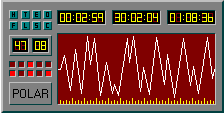HNC Electronics Modules(SQA)
A typical HNC in Electronics Engineering program by Distance Learning – Course Contents
HNC – Electronics Engineering – G0DW 15
Mandatory Units (9 credits required ):
(i) Unit Title: Mathematics for Engineering 1 {Electronics & Electrical} (1 credit)
Unit code: DG4H 33
This Unit is designed to enable candidates to know, understand and apply algebraic techniques to manipulate expressions and solve equations commonly found in engineering. It provides candidates with an opportunity to develop the knowledge and skills to carry out operations involving complex numbers. The Unit also allows candidates the opportunity to develop the necessary knowledge and skills to analyse trigonometric functions and their graphs.
On completion of the Unit candidates should be able to:
- Apply algebraic techniques to manipulate expressions and solve equations commonly found in Engineering
- Carry out operations involving complex numbers
- Analyse trigonometric functions and their graphs.
(ii) Unit Title: Single Phase A.C. Circuits (1 credit)
Unit code: DG54 34
This Unit is designed to enable candidates to develop knowledge and understanding and apply basic electrical concepts and theorems to the solution of simple electrical problems.
The Unit also provides candidates with the opportunity to examine first order transient responses as found in R – L and R – C series circuits.
The Unit also allows candidates the opportunity to develop the necessary knowledge and skills to solve single-phase a.c. circuit problems using complex notation.
On completion of the Unit candidates should be able to:
- Solve problems involving basic electrical concepts and theorems
- Solve single-phase a.c. circuit problems using complex notation.
(iii) Unit Title: Analogue Electronic Principles (2 credit)
Unit code: DG2X 34
This Unit is designed to give candidates knowledge and understanding to demonstrate a wide range of discrete and integrated circuit analogue electronic devices. It will also provide candidates with the underpinning knowledge to further their studies in analogue electronics at a higher level.
On completion of the Unit the candidate should be able to:
- Investigate the operation and characteristics of a range of discrete semiconductor devices.
- Investigate and demonstrate applications of semiconductor diodes.
- Investigate and demonstrate transistor applications.
- Investigate and demonstrate linear operational amplifier characteristics and applications.
(iv) Unit Title: Combinational Logic (1 credit)
Unit code: DG3C 34
This Unit is designed to enable candidates to gain knowledge and understanding and apply basic digital concepts applicable to combinational logic circuits. It provides candidates with an opportunity to develop the knowledge and skills to be able to design and construct combinational logic circuits to meet a design brief.
On completion of the Unit candidates should be able to:
- Solve problems involving number systems and binary arithmetic.
- Draw truth tables for common logic gates and derive combinational logic expressions.
- Interpret TTL and CMOS data sheets and use these devices in digital systems.
- Design and implement combinational logic circuits
(v) Unit Title: Sequential Logic (1 credit)
Unit code: DG53 34
This Unit is to provide candidates with the necessary knowledge to understand the organisation of sequential logic devices and circuits, develop skills to design, simulate, build and test sequential logic circuits.
On completion of this Unit candidates should be able to:
- Describe the characteristics of sequential logic circuits
- Describe the operation of sequential logic devices
- Design sequential logic circuits
- Simulate, build and test sequential logic circuits
(vii) Unit Title: High Level Engineering Software (1 credit)
Unit code: DG58 34
This Unit is designed to give candidates knowledge and understanding and apply basic software engineering concepts to solving electrical and electronic engineering problems that require a software solution. The emphasis in this Unit is on writing and testing I/O programs using the basic structures available in most high level languages.
This Unit provides the candidates with the opportunity to develop skills in system design (top-down design), detailed design (using flow charts or program design language), implementation in the design in a high level language and verification of the design. This Unit also allows the candidates to develop their communication skills by generating the documentation for the designed solution.
On completion of the Unit the candidate should be able to:
- Write and test linear programs using;
- Input and output statements for keyboard and visual display unit.
Input and output statements for I/O ports. - Write and test non-linear I/O programs using conditional statements to select different branches for execution.
- Write and test non-linear I/O programs using iterative loop statements.
- Write, test and document a control program, incorporating procedures and/or functions to read and write ports.
(viii) Unit Title: Communication: Practical Skills (1 credit)
Unit code: D77G 34
This Unit is about applying practical communication skills to complex issues in a vocational context.
On completion of the Unit candidates should be able to:
- Respond to written information on a complex vocational issue
- Produce written information in a prescribed format on a complex vocational issue
- Contribute to a formal group discussion on a complex vocational issue
(viiii) Unit Title: Electronic Testing Skills (1 credit)
Unit code: DG3N 34
This Unit is designed to enable candidates to gain knowledge of standard electronic test instruments and testing techniques. In addition, candidates will gain the opportunity to practice basic fault finding techniques.
On completion of this Unit, the candidate should be able to:
- Make measurements safely and accurately in electronic circuits, using analogue and digital multimeters
- Perform tests on electronic circuits safely and accurately, using oscilloscopes, function generators and frequency meters
- Perform tests on digital circuits using a logic probe, pulse generator and multimeter.
- Identify short circuit and open circuit faults in simple electronic circuits.
Optional Units (2.0 credits required):
(x) Unit Title: Electrical Networks and Resonance (1 credit)
Unit code: DG3G 34
This Unit is designed to enable candidates to develop knowledge and understanding and apply a range of network theorems to the solution of d.c. and a.c. electrical network problems.
The Unit also allows candidates to undertake a detailed study of series and parallel electronic and electrical passive resonant circuits that includes the calculation of Q – factor and bandwidth and the plotting of impedance – frequency and current – frequency curves for both series and parallel cases.
On completion of this Unit the candidate should be able to:
- Apply network theorems to solve electrical network problems.
- Solve problems involving resonating passive circuits.
(xi) Unit Title: Mathematics for Engineering 2 (1 credit)
Unit code: DG4L 34
This Unit is designed to give candidates knowledge and understanding and an ability to apply differential and integral calculus to Engineering problems.
On completion of this Unit the candidate should be able to:
- Carry out the differentiation and integration of standard functions.
- Apply differentiation and integration techniques to Engineering problems.
* Other subjects to follow
Graded Unit (1.0 credit)
(xii) Unit Title: Electronics Engineering Graded Unit (1 credit)
Unit code: DG2T 34
This Graded Unit is designed to provide evidence that the candidate has achieved the following principal aims of the HNC and HND Electronics.
- Develop knowledge, understanding and skills in a range of core electrical, analogue electronics and digital electronics principles and technologies at Higher National level (these studies in core electronic and electrical principles are underpinned by a mandatory Unit in Mathematics).
- Develop candidates’ ability to apply analysis and synthesis skills to the solution of electronic problems.
- Develop learning and transferable skills (including Core Skills).
- Develop a range of Communication knowledge and skills relevant to the needs of electronic incorporated engineers.
Recommended Prior Knowledge and Skills: It is recommended that the candidate should have completed or be in the process of completing the following Units relating to these specific aims prior to undertaking this Graded Unit:
- Analogue Electronic Principles
- Combinational Logic
- Sequential Logic
- Single Phase A.C. Circuits
- Mathematics for Engineering 1: Electronics and Electrical
- Communication: Practical Skills
It will consist of a written examination of three hours duration.
Note:
It should also be said that each of these HN modules are stand alone courses and are all achievements in their own merit. They are also often used for CPD (continuous professional development) to assist career progression.
If a student fails an end of unit test there is the opportunity for a resit at a later date. If a student falls short of a PASS by a few marks. The supportive exercises are then used as further evidence of the students work and the A-1 tutor can award a PASS in this instance based on academic judgement.















